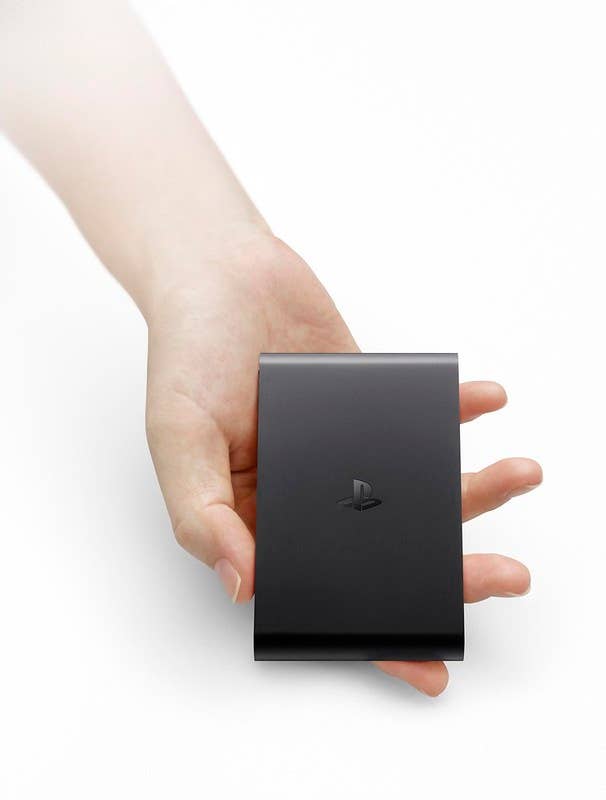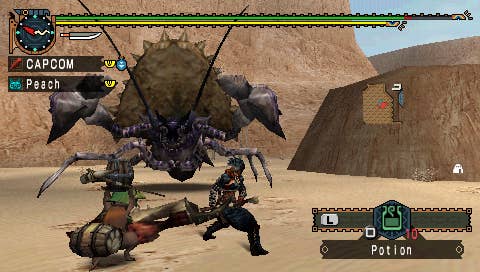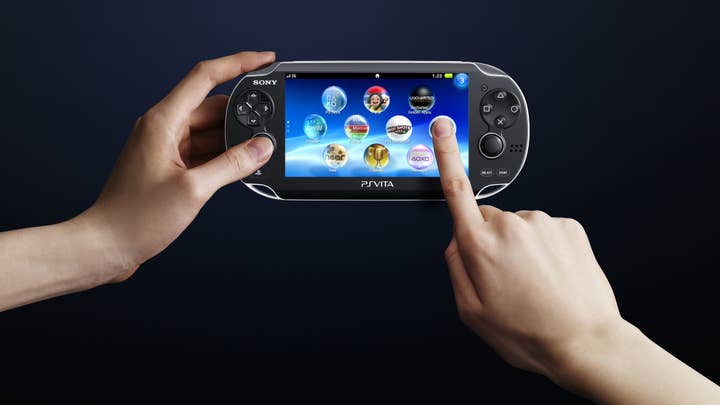Could Sony return to the handheld market? | Opinion
The company has always seen PlayStation systems as part of a hardware ecosystem – but the business case for adding a new handheld to the family does not seem promising
Sign up for the GI Daily here to get the biggest news straight to your inbox
When talking about the very different philosophies that Sony and Microsoft have brought to this generation of console hardware – and consequently, to their very different visions for the industry's future – it's often argued that where Microsoft sees Xbox as a software and services platform for which consoles are just one possible access device, Sony sees consoles in a more traditional sense, as a monolithic platform whose software and services orbit a singular piece of hardware.
That's more or less true, although the lines are more blurred than these definitions suggest; Sony definitely sees PlayStation as a generation-spanning digital platform to some extent, while Microsoft is clearly invested in the fortunes of the Xbox Series X/S consoles as hardware platforms. The biggest thing missing from this way of conceptualising the companies' strategies, though, isn't their overlapping aspects; it's that Sony doesn't just view each PlayStation as a monolithic console, but rather as the central component in a wider network of products, be they software, services, or hardware.
This is a concept that has its roots right back in the earliest days of the PlayStation line, and is deeply interconnected with the nature of Sony's broader business. Successful companies evolve and change in many ways over time, but path dependence remains a powerful force, so their original DNA persists in their decision making and values.
Nintendo, founded as a card and toy company, thinks of its consoles as advanced toys, making it an easy decision to take creative punts on hardware launches because it will be quick to drop low-performing devices, just as a toy company would. Microsoft, a software and operating systems company at its inception, approaches the games market by thinking about how to build a competitive advantage through operating systems – famously leapfrogging Sony with online functionality with the Xbox and Xbox 360, and now building its Xbox Series X/S brand around Game Pass services, advanced backwards compatibility, and remarkable OS features like Quick Resume and Smart Delivery.
Sony is a consumer hardware company, and almost everything else the company has ever been is ultimately in service of that
Sony, for its part, is a consumer hardware company, and almost everything else the company has ever been or continues to be is ultimately in service of being a consumer hardware company. It sees hardware as the centre of an ecosystem – a subtle but hugely important contrast to Microsoft's perception of the software platform being the centre, with hardware in its orbit – and its efforts to make PlayStation into the core of a powerful, unified hardware and software ecosystem date back decades.
Various stabs at realising parts of that vision have included the PSX, a 2003 device that built an advanced DVR (including image and video editing functionality) around the PS2 hardware; various TVs with integrated PlayStation hardware; add-on units like PlayTV and nasne which added DVR functionality to PlayStation consoles; and a variety of devices built around game and media streaming from the consoles, including several "PlayStation-certified" Xperia tablets and smartphones and 2013's short-lived PlayStation TV device.
The peak of all of this in some regards was the PS3 itself, which was initially announced with hardware like a built-in network switch, speaking to Sony's ambitions for the console acting as a home media server that would be the beating heart of an in-home network of devices for entertainment, productivity, and communications.

Then, of course, there are the handhelds. PlayStation Portable and PlayStation Vita were in many ways designed to carry this vision forward; neither of them was a "pure" gaming device in the sense of something like Nintendo's 3DS, with the PSP also being envisioned as a portable media device (quite a few movies even launched on the PSP's proprietary UMD discs) and an access unit for media stored on devices like the PSX and PS3, while the Vita built in a host of non-gaming media and communications features and was also designed as a terminal that would stream games and media from a PlayStation console.
It goes without saying that none of these ecosystem ambitions – grand as they were – ever quite turned out the way Sony hoped. PlayStations do not, in general, form the core of a home entertainment and communications network, nor is there a constellation of devices built around their functionality (and, by consequence, Sony's various stores and streaming services). But that unifying vision still informs what Sony does with PlayStation – and it would equally be wrong to say that it's been entirely unsuccessful.
Sometimes, Sony has swung for the fences and connected so solidly that it becomes hard to remember how dubious many people were about its ideas at first – think of the PS2 basically being the world's favourite DVD player for many years, or the number of people who used a PlayStation as their streaming device in the early years of services like Netflix or iPlayer, or indeed the general market success of the PSP, especially in Asia and Europe. Therefore, we shouldn't be surprised when Sony continues to swing for those fences by creating new hardware to put into the PlayStation's orbit as it searches for a competitive advantage and a new USP; throwing its weight behind VR headsets, for example, or perhaps even taking another swing at the handheld console market.
"Sometimes, Sony has swung for the fences and connected so solidly that it becomes hard to remember how dubious many people were about its ideas at first"
It's this latter idea that seems to have captured imaginations in the past week or so, with a few reports emerging (most notably from Insider Gaming) about Sony having a new handheld device in the pipeline. Full disclosure: I know a little bit about Sony's hardware plans in the coming year or so, but have heard nothing about a handheld console, which doesn't mean it's not happening but does mean I have no idea how much credence to give such rumours. At the very least, quite a few major developers remain in the dark about any such device – but if, as the reports suggest, it is primarily a streaming device for PS5 games, developers might not need to be deeply involved from an early stage anyway.
Would Sony really dream of re-entering the handheld space, though? This is a market the company still bears some bruises from; the Vita is arguably the company's only true failure, the only major PlayStation-branded platform to ever really fail to capture a decent market. It was a lovely piece of hardware in many ways, but dogged by a series of errors, and absolutely melted by Nintendo's renewed dominance of the handheld space – a dominance which is even more well-established now than it was then.
"Even if they never bring one of those to market, there will be some divisions and leaders within Sony who will never fully accept ceding the handheld space to Nintendo"
The commercial case for Sony re-entering that space is tough to make – but on the other hand, I'd argue that it would be hugely surprising if the company isn't at least playing with handheld prototypes internally. Even if they never bring one of those to market, there will be some divisions and leaders within Sony who will never fully accept ceding the handheld space to Nintendo. After the success of the PSP, retreating from that market segment hurt – and it hurt all the more when Nintendo launched the Switch and deflated any justifications about the handheld space being moribund in a post-smartphone world.
That pain is all the more acute in Japan, and while Sony's gaming operations are no longer headquartered in Tokyo, this is another area where corporate DNA plays a role – Sony remains at heart a Japanese company, and the relative underperformance of the PlayStation in Japan in recent years is a tough pill to swallow. It's hard to overstate just how dominant and ubiquitous the Switch is in Japan, and just how much the PS5 has been forced not just into second-place, but into a market niche. Part of that is about Nintendo's cultural position, for sure, but part of it is also about form factor; there's just a huge swathe of the addressable audience here for whom a dockable handheld makes much more sense than a chonker of a home console that requires a chonker of a television to be worthwhile.
It's not about the actual size of the console – those "Xbox was too big for Japanese apartments!" arguments have been an aggravatingly persistent kind of nonsense for the past two decades, with the console's physical size being the least of its problems in this market – but rather about the fact that many younger consumers simply don't have a big TV at home, and that a large proportion of them want to play games in out-of-home contexts like commuter trains or cafes. Seeing a Switch "in the wild" in Japan is not uncommon – and every time you see that, you're seeing a consumer who simply isn't in Sony's addressable market right now.

Sony knows very well – because there was a time when the PSP benefited enormously from this exact market dynamic. Ten years ago every fast food restaurant or major train station had a huddle of teenagers playing Monster Hunter on their PSPs; it was a cultural moment that fuelled the success of the PSP in this market. Even if that success was never replicated in North America (and only to a certain extent in Europe), it was a big deal in Asia, and not everyone at Sony will have given up on recapturing that – no matter how badly the PSP's successor may have stumbled. It would be far more surprising to learn that there is no internal project at Sony aimed at recapturing handheld market share, than it is to hear reports of a handheld device being tested.
"It would be far more surprising to learn that there is no internal project at Sony aimed at recapturing handheld market share..."
Whether that device ever makes it to market, though, is another question. Vita's failure showed that just slapping a PlayStation logo on a handheld – even a pretty competent one – is no guarantee of success, and the business case for another launch would need to be watertight. That's complicated by the fact that the market for handhelds is even more competitive now.
The Switch may have defied expectations, but that doesn't mean that smartphones and tablets haven't eaten a fair bit of the sector's lunch – and games on those devices may not be to everyone's taste, but they're comfortably standing shoulder to shoulder with console quality experiences now. Anyone considering launching or supporting a dedicated gaming handheld should have to sit and play something like Genshin Impact on a smartphone for a few hours, and then explain how they're going to improve dramatically on what's in everyone's pockets already – and if the answer is "better controls," it's worth noting how easy it is to pair a PlayStation or Xbox controller to a smartphone, not to mention that Sony and Microsoft have both actually licensed smartphone-compatible controllers based on their console controller layouts.
As for what remains of the handheld space, Switch has grabbed most of it – and if your thoughts turn to the possibility of launching some kind of premier handheld aiming at a more high-end market than Switch, it's worth recalling that devices like Valve's Steam Deck exist and have set some pretty tough expectations about pricing and performance.
The idea reported this week – that Sony might launch a handheld that's essentially a dumb slate, streaming from the user's PS5 – seems like a non starter in this context. As described, it does nothing a smartphone can't do, and would sell to a minority of PS5 owners rather than doing anything to recapture the handheld market Sony currently cedes to Nintendo.
"For Sony to launch something like this wouldn't be swinging at the fences – it would be tilting at windmills"
There's no strategic reason for such a device to come to market, and little commercial justification either. This doesn't mean that companies aren't considering the possibility – we know that Microsoft had a handheld device designed around streaming Game Pass titles in the works for a while, but that project has been shelved indefinitely, precisely because this simply isn't a good or appealing market segment. For Sony to launch something like this wouldn't be swinging at the fences – it would be tilting at windmills, embarking on a truly quixotic quest that has more to do with wounded pride over the tough market conditions it faces in its home territory than with any realistic anticipation of recapturing handheld glory.
Still, it's understandable if the embers of enthusiasm for handheld gaming still glow within Sony – and the desire to get back on top in the company's home market must burn even hotter. It seems unlikely that this will materialise as a product, at least as is being currently reported – but perhaps Sony still has the capacity to surprise us all.
A real handheld push with a significant new device, one that can broaden the platform's appeal beyond the existing PS5 market, would be exceptionally difficult, but it's certainly not impossible. Who knows; if Sony is ready to learn from the mistakes of Vita and throw its full weight behind a handheld platform it truly sees as a key part of the PlayStation strategy, then perhaps Nintendo's dominance might not be so unassailable after all.
Sign up for the GI Daily here to get the biggest news straight to your inbox

